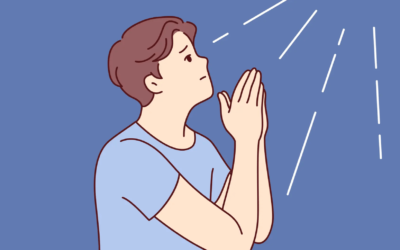As the highest court of law in Bangladesh, the Supreme Court of Bangladesh is the most important court. Part VI Chapter I (article 94) of the Constitution of Bangladesh, which was approved in 1972, is responsible for the establishment of this Supreme court, which is organized into two divisions: the High Court Division and the Appellate Division.
Additionally, this is the office of the Chief Justice of Bangladesh, as well as the Appellate Division Justices and the High Court Division Justices. For the period beginning in January 2024, the Appellate Division has a total of six justices, while the High Court Division has a total of 89 justices, of whom 78 are permanent and 11 are supplemental.
There are two divisions that make up the Supreme Court of Bangladesh. These divisions are the Appellate Division and the High Court Division. In addition to hearing appeals from subordinate Supreme courts and tribunals, the High Court Division also has original jurisdiction in certain restricted situations. These cases include writ petitions filed in accordance with Article 101 of the Constitution of Bangladesh, as well as concerns pertaining to companies and admiralty businesses.
According to article 103 of the constitution of Bangladesh, the Appellate Division is the one that has the authority to consider appeals from the High Court Division.Because it is not affiliated with the executive branch, the Supreme Court has the authority to decide against the government in matters that are considered to be politically contentious.
A obligatory conversation with the Prime Minister is required prior to the appointment of the Chief Justice of Bangladesh and other justices of the Supreme Court. The President of Bangladesh is the one who makes these appointments.[5] The position of Additional Judge is the entrance point to the seat of judges in the High Court Division. Candidates for this position are appointed from the practicing Advocates of the Supreme Court Bar Association and from the judicial service in accordance with the provisions of Article 98 of the constitution for a term of two years.
Currently, the percentage of such appointments is between 80 and 20 percent. In accordance with the provisions of Article 95 of the Constitution, an Additional Judge is appointed to a permanent position by the President of Bangladesh after the successful completion of this time and after taking into consideration the suggestion made by the Chief Justice. In accordance with the same law, the President of Bangladesh is also responsible for the appointment of the judges who serve on the Appellate Division. According to the provisions of Article 148 of the Constitution, all of these appointments begin to take effect on and from the day that the appointee takes an oath.
According to the provision of article 95 of the Constitution (Thirteenth) Amendment Act, 2004 (Act 14 of 2004), a judge of the Bangladesh Supreme Court is allowed to continue serving in their position until they reach the age of 67 years. A retired judge is unable to argue or act before any court or authority, or to occupy any position of profit in the service of the country, provided that the post in question is neither a judicial or quasi-judicial one, or the office of the Chief Adviser or Adviser.
The High Court Division has undergone recent reforms
Significant changes have been made to the High Court Division in order to conform to the ever-evolving requirements of society and the problems posed by the legal system. All residents will have equal access to justice as a result of these changes, which seek to simplify Supreme court procedures, improve efficiency, and accomplish these goals.
Ensuring the Transparency and Accountability of the Judicial System
The foundations of a legal system that is fair and just are accountability and transparency from the very beginning. The High Court Division is dedicated to safeguarding these ideals by implementing strong supervision measures and conducting procedures in an open and transparent manner.
Facilitating Access to Legal Representation for Citizens

It is essential to have access to legal assistance in order to guarantee that all persons, regardless of their socioeconomic standing, are able to make use of legal action. As a means of enabling disadvantaged populations to pursue justice, the High Court Division is at the forefront of projects that aim to give free or subsidized legal help to vulnerable communities.
Resolving Historic Cases of Supreme Court
The High Court Division is responsible for deciding matters that are of national importance and often establishes legal precedents that have an impact on the jurisprudence of the country. The court’s decisions have far-reaching repercussions for governance and human rights, ranging from decisions regarding constitutional issues to lawsuits involving public interest.
Technology’s Place in Judicial Proceedings
The High Court Division has embraced technology in order to get judicial cases completed more quickly and to improve access to justice in a society that is becoming more digital. The court process has been changed by the introduction of electronic filing systems, virtual hearings, and online case management platforms, which have significantly improved its efficiency and accessibility.
Opportunities and Difficulties Ahead
The High Court Division is confronted with a multitude of obstacles, including a backlog of cases, limited resources, and complicated procedures, despite the fact that it has made admirable efforts. The judicial system is being driven toward greater efficiency and effectiveness as a result of these problems, which also bring potential for innovation and change.
Conclusion
Ultimately, the High Court Division of the Supreme Court of Bangladesh serves as a stronghold of justice, ensuring that the rule of law is upheld and protecting the rights of the people. In order to continue adapting to the ever-evolving requirements of society, it has recently implemented changes, and it has made a commitment to transparency and has embraced technology.



